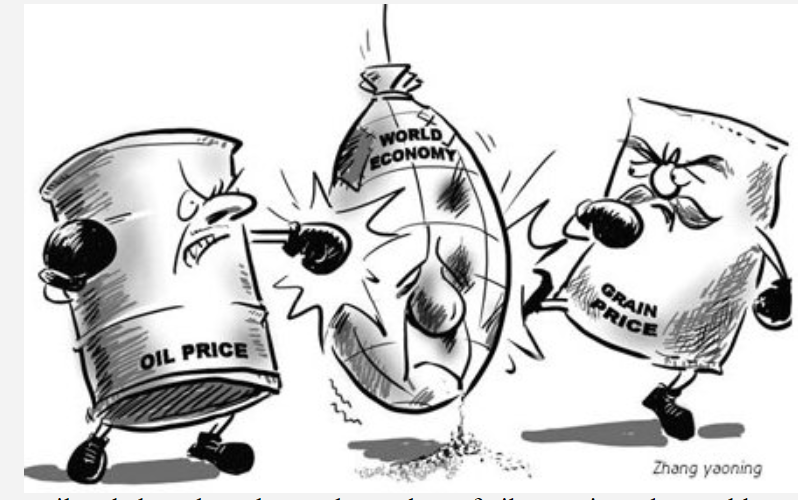As the world wrestles with soaring energy prices just ahead of winter, Turkey is revving up efforts to ensure the fallout is only minimally reflected on its citizens and their energy bills, according to officials. Turkey imports most of its fossil fuel needs, with total energy related imports approximated at $40 bn per year. As a rule of thumb a $10 increase in Brent crude, or its calorific natural gas equivalent widens Turkey’s current account deficit by $4 bn, or %0.6 of GDP. A 10% jump in energy prices (reflected to consumers) adds roughly %1.5 to headline inflation.
These negative schools appear manageable in a $725 billion economy with the annualized budget deficit running at a 2% of GDP pace, but the inflationary consequences are huge. Turkey’s unhinged inflation expectations could rise further. At the industry level there are severe problems caused by the global energy shock.
“Even though the prices of energy, goods and services are increasing at exorbitant rates on a global level, we are protecting our citizens by reflecting them at a rate of one-third and one-fifth,” Erdogan said at a groundbreaking ceremony of a polypropylene factory in the southern province of Adana.
Turkey’s natural gas prices have risen by 18% for residential use since the beginning of the year, according to Energy and Natural Resources Minister Fatih Dönmez. Electricity prices have been up 21%, he said.
“Not all costs incurred are reflected on households, small consumers and tradespeople. In natural gas and electricity, only about half of the cost increase has been reflected,” Dönmez told a private broadcaster Friday. “In other words, the state meets half of the bill. We reflect it on the citizen in the least possible way by making sacrifices. Practices will continue within this framework.”
Dönmez stressed he has been in the industry for 30 years but “I have not seen anything like this,” elaborating on the current global energy crisis.
“The price of a barrel of oil has gone over $80 this year. Production in Europe has decreased. This situation caused a rise in prices,” he noted.
In the context of CPI already running at 20% per annum and deepening poverty, the government is forced to subsidize an ever-increasing portion of consumers’ energy bill. This creates problems with the fiscal management. In other words Ankara is stuck between higher inflation and higher budget deficits.
Yet, subsidizing energy prices is done haphazardly, without regard to producer and intermediaries. The energy industry could suffer from a spate of bankruptcies, told industry insider (board member of leading industry lobbying group) to PATurkey, who wishes to remain anonymous.
WATCH: Turkish Economy: The Good, the Bad and the Ugly | Real Turkey
“Turkey too finds itself in an uncertain position. Deputy Minister of Energy and Natural Resources Alparslan Bayraktar stated that Turkey’s natural gas demand will be around 60 billion sm3 this year, an increase of 24% over 2020, and 29% percent above the country’s average demand since 2010” notes a report by think tank EDAM.
Turkey has three main interlinked vulnerabilities
The first, and most straightforward one, is the matter of heating. In 2019, heat generation sourced by natural gas comprised around 50% of the total amount. Increased prices have already affected the Turkish distributors most recently with a 15% rate hike, the eighth one this year. More hikes are expected, and it is likely that the increased prices for distributors will have to be passed on to consumers at one point. Yet, as long as energy prices remain high or continue to surge, some amount of subsidy will be needed, which means generators are facing a long period of margin squeezes.
WATCH: A Uniquely Turkish Disease: High Chronic Inflation
Natural gas is the main source of heating in Turkey, yet households’ share in total consumption was 32.35% in 2020. It was followed by the conversion section with 28.27% and the industrial sector with 26.31%. Beyond heating, the price increase will also have effects on electricity generation and industrial output. A downturn in both would represent additional detriments for the economy. Unlike heating, where government regulation can shield consumers from price increases to some degree, lower industrial output would not only harm customers but may even hinder exports that are crucial for Turkey. Sectors key in exports such as steel, minerals, chemistry and textile are among those that consume relatively higher shares of industrial natural gas.
The commodity is also key in Turkey’s electricity generation. In 2020, it was the second biggest source comprising 22.7% of total generation. The shock is therefore certain to affect energy prices in Turkey, which will have adverse indirect effects throughout the economy, adds EDAM.
Given its higher demand, uncertain winter temperatures, and difficult markets, the Gazprom deal appears as a key determinant of natural gas prices this coming winter. Consumers will have to incur higher costs in any case, but the intensity of indirect effects on the economy at large will be determined based on the balance between the cost of long-term contracts and how much Turkey will have to resort to spot markets.
Inability to secure enough NG through long-term contracts would turn generators’ margin squeeze into losses, in an industry where a heavy load of FX debt and 3 years of inadequate tariff hikes destroyed profitability.
Many multinational players had already left the market, claiming it is no longer profitable. Bad loans of energy companies are reported to be soaring, but evergreened by benign neglect of banking regulator BRSA. It is almost certain that high-cost generators will go out of business if the current energy shocks continues into 2022-2023 period.
Ankara must pray for energy shock to be “transitional,” lest it destroy fiscal rectitude or consumer budgets, or the vital energy industry.
Follow our English language YouTube videos @ REAL TURKEY: https://www.youtube.com/channel/UCKpFJB4GFiNkhmpVZQ_d9Rg
And content at Twitter: @AtillaEng
